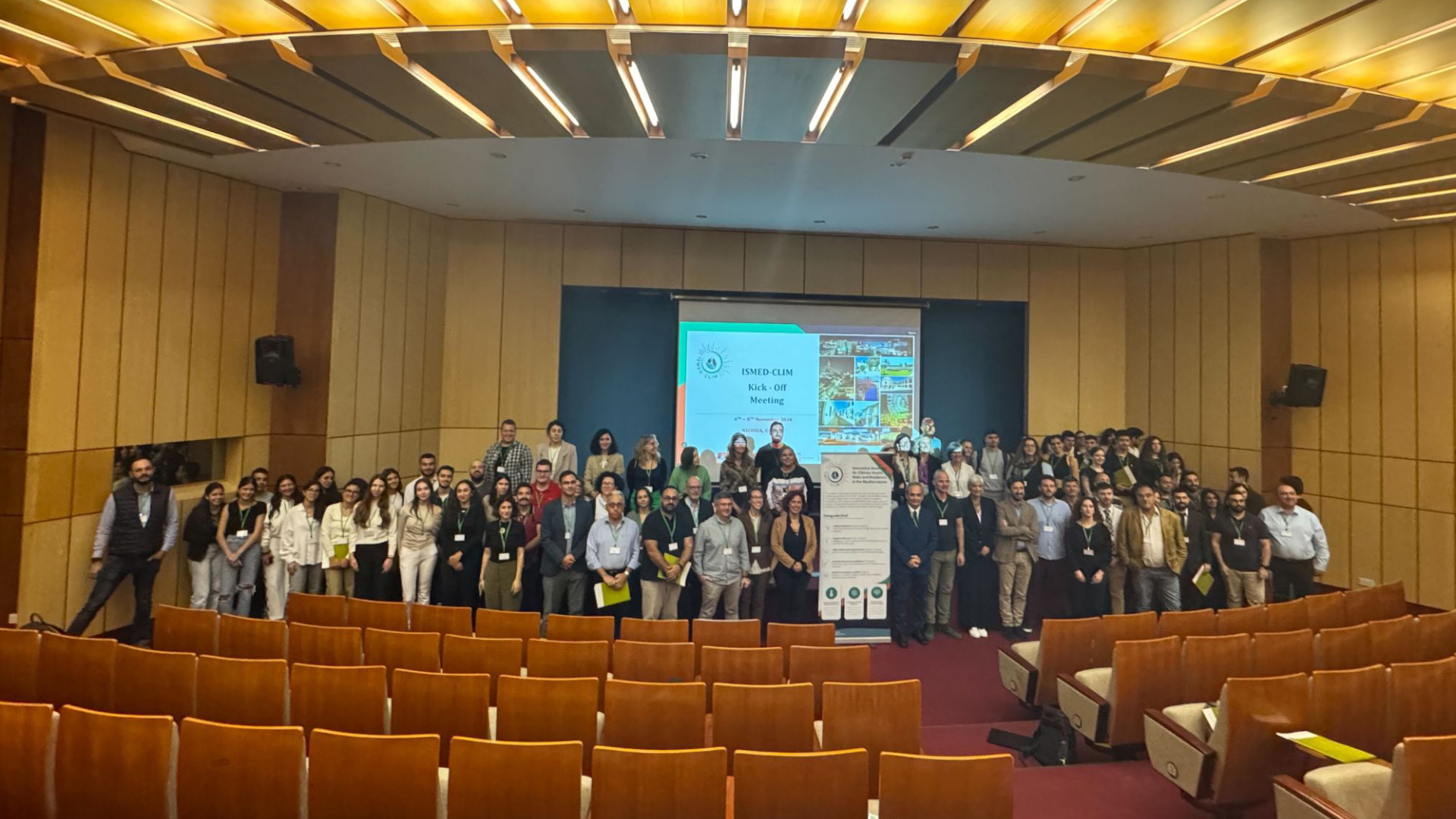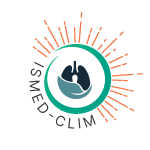ISMED-CLIM Kick-Off Meeting: Setting the Stage for Climate-Health Action in the Mediterranean

The ISMED-CLIM project held its official kick-off meeting on November 4–5, 2024, in Nicosia, Cyprus, bringing together over 70 representatives from academia, healthcare, policy, and technology sectors across the Mediterranean and beyond. The two-day event marked the formal start of a four-year initiative focused on mitigating climate-related health risks and strengthening healthcare resilience in the Mediterranean region.
Opening and Strategic Framing
The meeting opened at the Shiakolas Educational Center of Clinical Medicine, with welcoming remarks from Professor Panayiotis Yiallouros (Project Coordinator), Tasos Christofides (Rector of the University of Cyprus), a representative of the Cyprus Ministry of Health, and Dr. Irshad A. Shaikh from the WHO Regional Office in Cyprus.
The morning session focused on the broader climate and health landscape in the Mediterranean. Experts presented the current state of heat, wildfire, and flood modelling, followed by a session on the health effects of climate change. The ISMED-CLIM project vision and structure were introduced in detail by the coordinator, followed by an overview of the EU Mission on Climate Adaptation by Stephanie Matt from DG CLIMA, European Commission.
Work Package Presentations and Technical Discussions
The technical programme began with an overview of the Grant Agreement and key implementation steps, presented by CINEA representatives Marko Adamovic and Frederik Accoe. This was followed by a series of focused sessions on each of the project’s seven work packages (WPs).
-
WP1 and WP2 explored the foundation of the project: establishing the framework, identifying user needs, and reviewing the current evidence on climate-related non-communicable and infectious diseases in the Mediterranean.
-
WP3 presented the design of digital tools for personalized alerts, risk communication, and data collection on heat exposure and health.
-
WP4 outlined the five Living Labs (LLs), including randomized controlled trials with outdoor workers, pregnant women, and older adults with hypertension, as well as interventions targeting zoonotic diseases and health system preparedness.
-
WP5 and WP6 addressed replication strategies, policy outreach, training, communication, and exploitation. Discussions focused on sustaining the project’s impact beyond its completion.
Second Day: Collaborative Planning and Technical Round Tables
Day 2 began with WP7 presentations on project coordination and quality management by Antonis Michanikou and Alex Bensenousi. This set the stage for a series of parallel technical round tables that allowed teams to deep-dive into practical implementation topics:
-
Group 1: Regional Task Forces and participatory planning workshops
-
Group 2: IT platform architecture and integration
-
Group 3: Development of meteorological alerts for the Early Warning and Response System (EWRS)
-
Group 4: Living Lab interventions, wearable sensors, and tailored recommendations
Each group presented its conclusions in a wrap-up session, providing clarity on the next implementation steps and areas needing further coordination.
Governance and Next Steps
The meeting concluded with a joint session of the Project Management Board and Task Leaders, reviewing the timeline, responsibilities, and expected outcomes across all WPs. A final group lunch provided an opportunity for informal networking and alignment before participants returned to their respective regions to begin the first phase of implementation.
Moving Forward
The ISMED-CLIM consortium now turns to the execution of its Living Labs and digital infrastructure, aiming to generate actionable knowledge and policy-ready tools. The kick-off meeting provided the necessary strategic and operational grounding to launch this effort with a shared understanding of challenges, priorities, and goals.
